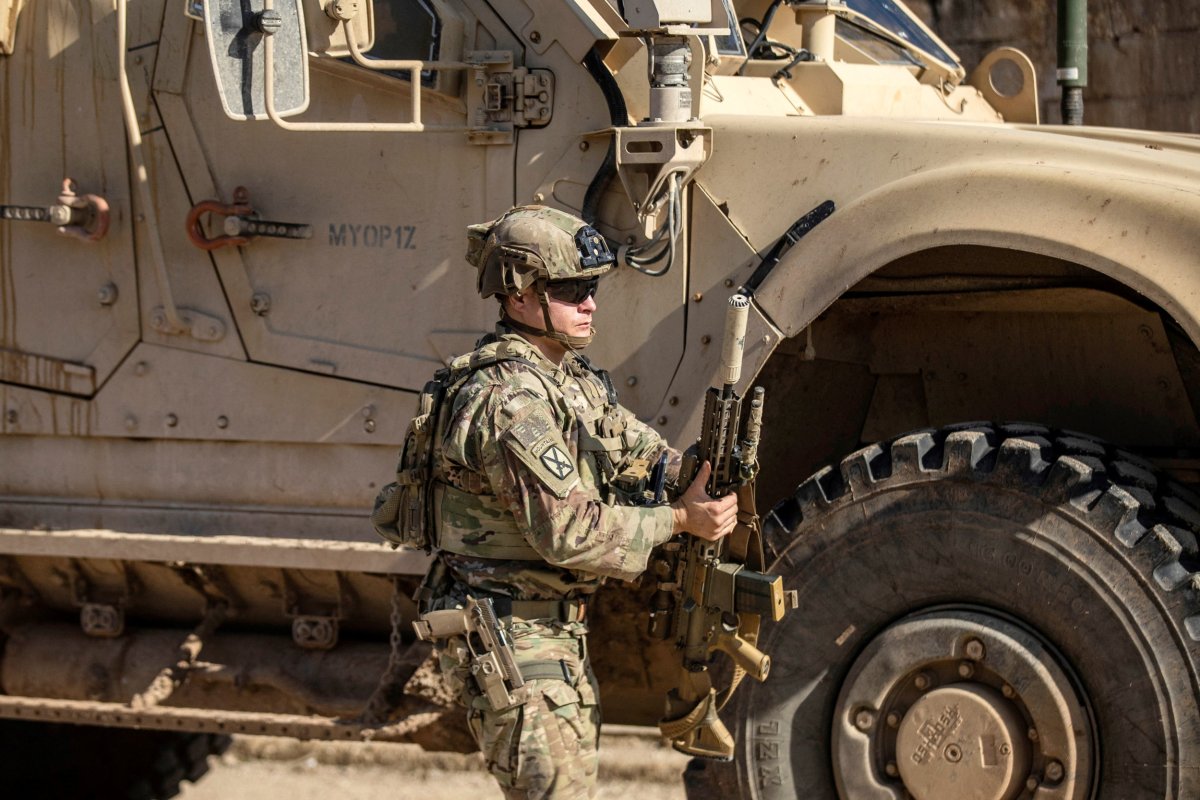Alexander Langlois
The United States is reportedly exploring options for a military withdrawal from Syria—something it should have done long ago. A withdrawal is necessary considering Washington's mission has been rudderless for years after defeating the Islamic State, also known as ISIS. Amid ever-worsening global instability, the United States should limit its military footprint abroad, including a full withdrawal from Syria.
The inertia of U.S. foreign policy has blocked this decision. Like clockwork, numerous analysts and former officials condemned any withdrawal from Syria, resorting to the same tired arguments about the need to defeat ISIS. Washington's foreign policy establishment never fails to fearmonger while elevating so-called credibility and moral arguments for military adventurism abroad—with Syria constituting an excellent case study.
Hawkish arguments do not match facts on the ground. The Islamic State was territorially defeated in 2019 following the battle for Baghuz in northeast Syria. The U.S. Department of Defense (DoD), while expressing some concerns about the group's activities in recent years, regularly assesses that the terrorist group does not pose a threat to the United States.
The latest DoD report stated that "[ISIS] remained incapable of mounting large, complex attacks locally or externally." This hardly suggests U.S. forces should be on the ground fighting ISIS. Rather, the group lacks any serious capacity to threaten more than the occasional Syrian Army convoy or small village, just like most non-state armed actors.
To be sure, Syrian civilians deserve security and dignity, just as any other person. But this does not justify arguments in support of a U.S. military presence in Syria when considering alternative policy options and understanding Washington cannot fight every armed terror group around the world.
As such, it is possible to cede security operations against ISIS to other actors with a much higher degree of interest in operating in this space. The list of stakeholders is long.
It should not be lost on anyone that Iran, via its militias in Iraq, played a huge role in defeating ISIS and has a strong presence in Syria. Equally important are the Syrian Democratic Forces (SDF)—Washington's partner in Syria. Other regional actors with an interest in Syrian security can and should play a role, not limited to Turkey, Russia, Jordan, Iraq, and the Syrian government. Simply put, there is no reason previous competition should block shared interests when it comes to ensuring ISIS never again holds territory.

A U.S. soldier patrols an area in the town of Tal Hamis, southeast of the city of Qameshli in Syria's northeastern Hasakeh governorate, on Jan. 24, 2024.
Washington's foreign policy elite dismiss these alternatives. To be sure, it is incredibly unpalatable—especially in today's world of hyper-competition—to cede any ground along any front to Tehran, Moscow, or Damascus. These governments brutalize their populations and the people of other countries, with Iran and Russia openly backing Syrian President Bashar al-Assad's horrific annihilation of any political opposition during a 13-year-old war that has killed at least 500,000 people.
These issues could be addressed in a just world. But Syria is not an arena for positive or just policy outcomes—only the best-worst options. Assad won the war years ago and is being welcomed back into the regional diplomatic fold. He will likely rule until the warring parties reach a political solution. Until that time, Syria will remain rife with instability that is only worsened by the presence of multiple competing foreign armies, leaving U.S. troops increasingly exposed in the process.
Critical to Washington's Syria policy is the scope of its Syria mission, which has nothing to do with Assad and everything to do with ISIS. The United States is applying a 2001 Authorization for Use of Military Force (AUMF) focused on Al-Qaeda to justify its military operations in Syria, arguing that ISIS grew out of the terror group that conducted the 9/11 attacks in 2001. This AUMF does not apply to the Syrian government or Iran.
Disregarding Assad or Iran, the legal justification for the U.S. military presence in Syria to fight ISIS is legally dubious. The Islamic State is not Al-Qaeda, even if many of the latter's members joined the former after the 2001 U.S. invasion and occupation of Iraq. And the decimated ISIS of today is not the same threat it was when the group governed territory. Any effort to deter Iran—explicitly stated as a goal by U.S. officials—similarly fails to fall under this AUMF.
Even while some argue the U.S. Syria mission is a relatively low-cost, high-reward operation, the reality is murky. United States personnel regularly face attacks from Iran-backed militias in remote bases across Syria that are increasingly difficult to defend. The deaths of three U.S. soldiers in a similarly remote base on the Jordan-Syria border should not be lost on those willing to bargain U.S. lives for ill-defined and unending military operations. Worse, one unresolved conflict in a region abounding with instability is a net negative for that region, ultimately compounding complications for an overstretched and hyperactive U.S. policy.
Ultimately, removing U.S. troops from Syria is wise. Washington should expedite this process in collaboration with partners and foes sharing an interest in Syria's stability. In the end, even rivals like the United States and Russia can agree on the need to stifle the Islamic State. U.S. policymakers are obligated to consider creative solutions that meet U.S. interests—not create more forever wars.
No comments:
Post a Comment